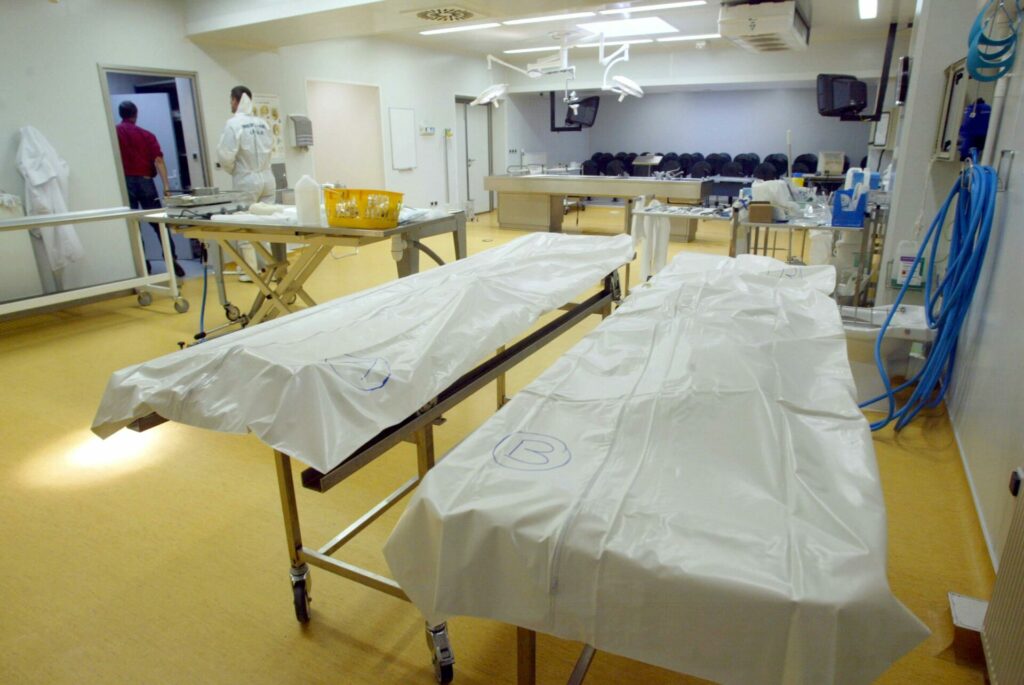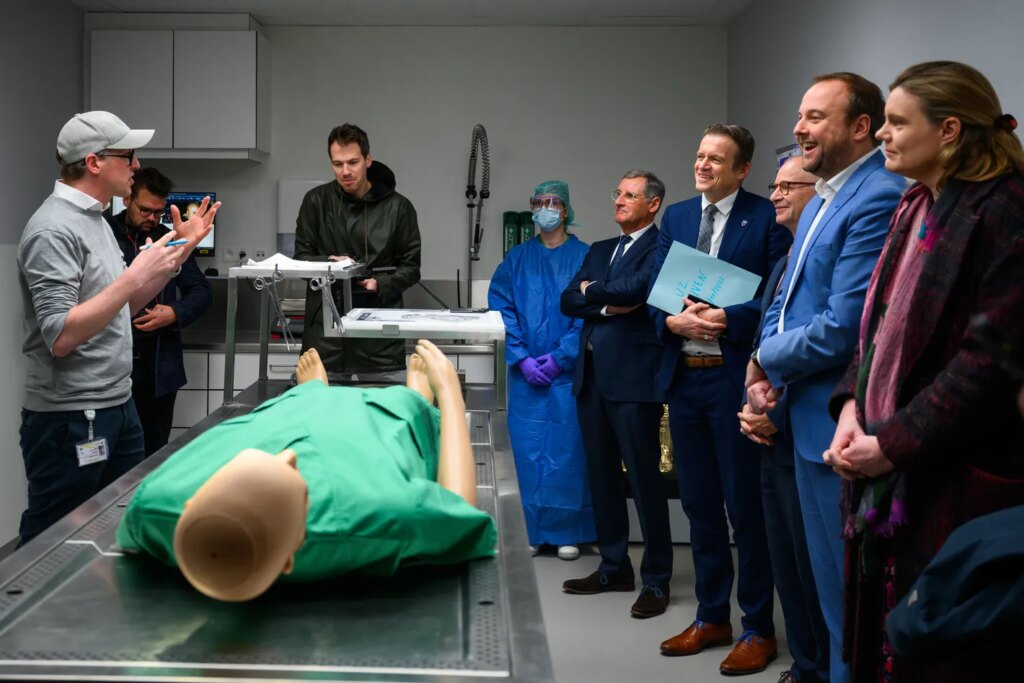Belgium has recognised UZ Leuven's forensic medicine service as the first Forensic Medical Institute (FMI) in the country, announced Federal Justice Minister Paul Van Tigchelt.
The FMI is an expertise centre where coroners can use high-tech equipment and can further professionalise. In practice, this means that UZ Leuven will be responsible for one third of autopsies in Flanders.
"There are about 40 coroners in Belgium. That's relatively few. The profession is becoming less and less attractive due to irregular hours and long studies, among other things," said Van Tigchelt.
"As a result, many coroners are overloaded with work, which is not conducive to the rapid functioning of Justice. To make the profession sustainable in the long run and unify the approach across the country, we want to establish five FMIs."
State of the art
Coroners will be able to unite, establish work arrangements, undertake internships and use the same high-tech equipment. "This will make the profession better in the future and ensure influx. UZ Leuven will be the first FMI in the country with a state-of-the-art autopsy room."
Currently, autopsies are only performed on 0.5% to 1% of deaths in Belgium (well below the European target of 10%), which means that some suspicious deaths may go unnoticed. As early as 2013, the Royal Belgian Society for Forensic Medicine estimated that there are around 70 unnoticed suspicious deaths per year. The FMIs should now ensure a turnaround, however.
In the event of a death, it is the task of the first attending physician to assess whether or not it concerns an 'unusual' or suspicious death that requires further investigation. In those cases, the Public Prosecutor's Office must be informed and a coroner is appointed.

Credit: Belga
In consultation with the laboratory, the Public Prosecutor's Office then determines whether further investigation is advised and whether an internal examination or autopsy should be carried out to determine the precise cause and nature of the death.
Belgium's low number of autopsies can be explained by the approach taken in various links of the chain. For instance, doctors in primary care often have insufficient expertise to detect the indications of a suspicious death, such as tiny pinpoint haemorrhages in the eyes (while often not noticeable, they can be a first indication of strangulation as a cause of death).
Additionally, it is not always easy for general practitioners, who know the deceased person and surviving relatives, to file a judicial and medical objection in the event of an unusual death.
Related News
- Person found dead in Schaerbeek squat in Brussels
- Investigation into alleged 'fake suicide' of 60-year-old woman in Brussels
- Drunk driver arrested for manslaughter after fatal Ixelles hit and run
Many are leaving the profession due to retirement and inflow is relatively limited. To become a coroner, the extensive training as a specialist in forensic medicine takes at least 11 years. During their career, they also have to deal with very irregular working hours.
Last year, it was decided that there should be five FMIs spread across Belgium's university hospitals. This way, autopsies can be carried out in the same way throughout the country.
UZ Leuven says that the autopsy room enables the hospital to compete at the top European level. The recognition as the first FMI also means a subsidy of €474,000 in 2023 and €1,212,000 in 2024. This will enable UZ Leuven to maintain the quality of its forensic services in the long term, ensure the influx of medical doctors, use the latest techniques and focus more on victim care for surviving relatives.

